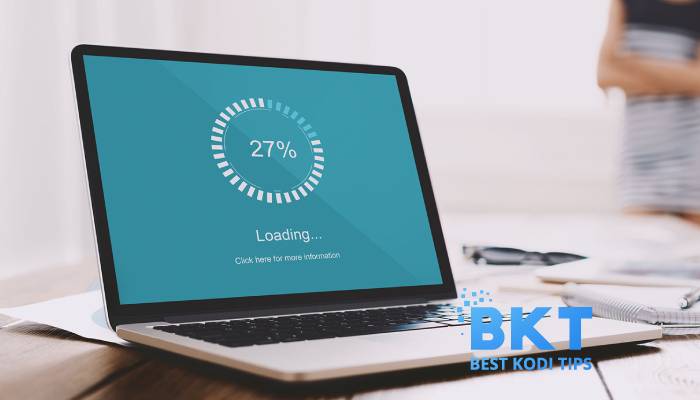Various factors can cause a slow computer; fixing a slow computer may involve several steps (depending on the nature of the problem). This guide explains some of the root causes for slowing down a computer and some suggestions to help you speed up your computer for handling extensive graphics tasks. Before making the suggestions, let’s discuss why your computer is so slow.
What are the Main Causes of a Slow Computer?
Your computer might be slow due to various factors, often resulting from multiple hardware or software issues. Here are some common causes of a slow computer:
Insufficient RAM (Random Access Memory)
If your computer is handling high-level jobs and its RAM needs to be sufficient, then it will struggle to handle the processes, and as a result, it will slow down. In this way, running memory-intensive (RAM) applications can be particularly affected.
Low Disk Space
When you’re hard drive or SSD is nearly complete, your computer may slow down as it struggles to find space for temporary and swap files.
Fragmented Hard Drive
Over time, files on your hard drive can become fragmented, meaning they are scattered in different locations. It can slow down file access times.
Too Many Background Processes
Numerous background processes and applications running at startup can consume system resources, affecting overall performance.
Malware and Viruses
Malicious software can significantly impact your computer’s performance by running in the background, consuming resources, and performing unwanted tasks.
Outdated Software and Drivers
Running outdated operating systems, software, or drivers can lead to compatibility issues and reduced performance.
Overheating of Computer
Overheating can cause a computer to slow down or even shut down to prevent damage. Ensure that your computer’s cooling system is functioning correctly.
Old or Failing Hardware
Aging hardware, such as a hard drive reaching the end of its lifespan, can lead to slower performance. Mechanical hard drives, in particular, can become slower over time.
Unoptimized Web Browsers
Browsers with many extensions, cached files, and cookies can become sluggish. Clearing these files and optimizing browser settings can help.
Visual Effects and Animations
Fancy visual effects and animations can consume system resources. Disabling unnecessary visual effects can improve performance.
Startup Programs
Too many programs set to run at startup can slow down the boot process and overall system performance.
Network Issues
Slow internet connectivity or issues with the network hardware can impact online tasks and overall system responsiveness.
Unsupported Hardware
Running modern software on outdated or unsupported hardware may result in slow performance due to the inability of the hardware to meet software requirements.
Addressing these issues may involve a combination of hardware upgrades, software optimizations, and regular maintenance. Identifying the specific cause of the slowdown can help you implement targeted solutions to improve your computer’s performance.
How to Fix a Slow Computer
Check for Malware and Viruses
Run a full system scan using your antivirus software to check for malware and viruses.
Consider using additional malware removal tools to ensure a thorough scan.
Free Up Disk Space
Delete unnecessary files and programs.
Use the built-in Disk Cleanup tool on Windows or the Storage Management tool on macOS.
Consider moving large files to an external drive or cloud storage.
Manage Startup Programs
- Disable unnecessary startup programs to reduce the time it takes for your computer to boot.
- On Windows, you can use the Task Manager to manage startup programs.
- On macOS, go to “System Preferences”> “Users & Groups”> “Login Items” to manage startup items.
Update Software and Drivers
Keep your operating system, drivers, and software up to date.
Check for updates regularly and install them as needed.
Upgrade Hardware
If your computer is still slow, consider upgrading hardware components like RAM or replacing the hard drive with a solid-state (SSD).
More RAM can improve overall system performance, and an SSD can significantly speed up data access times.
Optimize Your Web Browser
Clear your browser cache and cookies regularly.
Disable or remove unnecessary browser extensions.
Consider using a lightweight browser or resetting your current browser to default settings.
Adjust Visual Effects
- On Windows, adjust visual effects for better performance. Right-click on “This PC” or “Computer,” select “Properties,” then go to “Advanced system settings,” and under the “Performance” section, click “Settings” to adjust visual effects.
- On macOS, go to “System Preferences”> “Accessibility”> “Display” and uncheck unnecessary visual effects.
Check for Resource-Hungry Applications
Use the Task Manager (Windows) or Activity Monitor (macOS) to identify and close resource-hungry applications.
Consider using alternative lightweight applications when possible.
Upgrade Your Operating System
Ensure you are using the latest version of your operating system, as newer versions often come with performance improvements.
Consider a Fresh Operating System Installation
If all else fails, a clean reinstall of your operating system can often provide a significant performance boost. Make sure to back up your important data before doing this.
Remember to back up your important data before making significant changes to your system. If you need clarification on any of the steps, it may be a good idea to seek assistance from a knowledgeable friend or a professional.















Comments